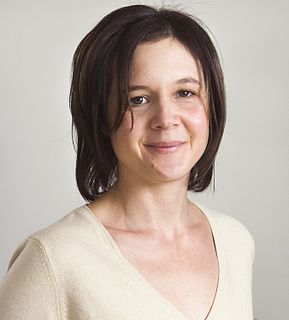A Quote by Sheryl Sandberg
The gender stereotypes introduced in childhood are reinforced throughout our lives and become self-fulfilling prophesies. Most leadership positions are held by men, so women don't expect to achieve them, and that becomes one of the reasons they don't.
Related Quotes
. . . black women . . . are trained from childhood to become workers, and expect to be financially self-supporting for most of their lives. They know they will have to work, whether they are married or single; work to them, unlike to white women, is not a liberating goal, but rather an imposed lifelong necessity.
Men have influenced my activism and feminism both positively and negatively. As most gender differences are social, not genetic, we still need to change what we do and what we expect of each other... The potential exists for societies where men and women do not have to conform to unwanted stereotypes.
Feminism is a belief that although women and men are inherently of equal worth, most societies privilege men as a group. As a result, social movements are necessary to achieve political equality between women and men, with the understanding that gender always intersects with other social hierarchies.
Most men love women. Most men are intrigued and bedeviled by them. Most men spend their lives dreaming about women. It's the most natural, normal thing in the world to do, but here comes the left and the Democrat Party trying to politicize even male-female relationships by inculcating into them things like feminism, proper political behavior.
When the environment makes gender salient, there is a ripple effect on the mind. We start to think of ourselves in terms of our gender, and stereotypes and social expectations become more prominent in the mind. This can change self-perception, alter interests, debilitate or enhance ability, and trigger unintentional discrimination. In other words, the social context influences who you are, how you think and what you do.
In our own lives, having a mind-set of expecting to win increases our odds of winning. It helps us get better results. And better results help us increase our credibility and self-confidence, which leads to more positive self-expectancy, and more winning - and the upward cycle continues. It becomes a self-fulfilling prophecy.
Positive self-expectancy is the first, most outwardly identifiable quality of a top-achieving, winning human being. Positive self-expectancy is pure and simple optimism: real enthusiasm for everything you do... [while] expecting the most favorable result from your own actions. There never was a winner who didn't expect to win in advance. Winners understand that life is a self-fulfilling prophecy. And they know that you usually get what you expect in the long run.



































